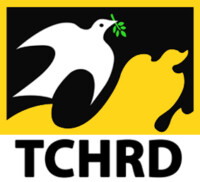Two new torture cases involving former Tibetan political prisoners have emerged this month, just a couple of months after the People’s Republic of China (PRC) faced tough questioning from a UN rights watchdog. Both men served seven years each for their participation in 2008 uprising and are undergoing treatment for injuries sustained during detention. One of them is in critical condition and may not survive the treatment.
At its fifth periodic review before the UN Committee Against Torture (CAT) in November 2015, the PRC again claimed that allegations of torture and ill-treatment of ‘ethnic minorities’ such as Tibetans and Uyghurs are ‘groundless’. In 2008, during the widespread protests throughout Tibet the PRC had another periodic review before the Committee Against Torture. Similar to what the PRC attempted in 2015, the PRC dismissed claims of torture as “groundless” and failed to provide practical or statistical information about the implementation of the Convention Against Torture. The Committee was not deceived by the PRC and issued recommendations that called for accountability for the events in Tibet. The extent of the PRC’s lies was revealed by evidence after the periodic report, including an official autopsy report from Lhasa that showed Tibetan protesters were killed with automatic weapons.
At the November 2015 review, the PRC stuck to its standard practice of repeating the same line on non-existence of any political prisoners in PRC, improved detention conditions including adequate medical facilities and personnel in detention centers and prisons, and the ‘sense of comfort’ and ‘safety’ the dreaded ‘Tiger Chair’ torture tool provides to the detainees during interrogation. Clearly, for PRC, the fifth periodic review was ritual as usual; nothing had changed since its fourth periodic review in 2008.

On 12 January 2016, a former Tibetan political prisoner, Kelsang Tsering, was reportedly admitted into a hospital at Chengdu, capital of Sichuan Province, for treatment for injuries sustained during his seven years’ imprisonment. Images of Kelsang Tsering shared outside Tibet on social networking sites show him lying facedown on a hospital bed wrapped in thick blankets. About six months after his release on 19 July 2015 from Chulshul Prison near Lhasa, he still carries “a large, open wound on his back”. He was flown to Chengdu, after failing to respond to treatment in Lhasa. His treatment is funded by donations raised by Tibetans inside Tibet.
Kelsang Tsering, his wife and child have faced livelihood problems since his release. His chances of his recovery are said to be minimal. His impending death due to detention-related torture would remain unaccounted for by the Chinese authorities or prison officials, like many hundreds and thousands before him. Kelsang Tsering was detained in 2009 for joining one of the many protests that comprise the 2008 Tibetan uprising. For a year, he was kept in secret detention before he was sentenced to seven years of rigorous imprisonment at Chulshul Prison. Kelsang Tsering is from Toelung Dechen County, Lhasa Municipality, Tibet Autonomous Region (TAR).
On 5 January 2016, another political prisoner, Kelsang Khedup, 47, was released from Mianyang prison near Chengdu after completing seven years. The father of two is currently undergoing treatment for his failing health condition including asthma. He was detained on 5 March 2009 for his involvement in 2008 uprising, within a day of his second child’s birth. After a year in secret detention, he was sentenced to seven years charged of ” inciting ethnic disputes” and ” harming social stability”. His case remained unknown until now due to his family members who refused to break the news for fear of retribution. Two of his five siblings, a sister Namsey Lhamo and a brother Pema Gyatsen had also been sentenced to prison on account of their participations in 2008 peaceful protest in Kardze (Ch: Ganzi) County in Kardze Tibetan Autonomous Prefecture, Sichuan Province. Both of them had since been released after completing their terms. Kelsang Khedup was born and raised in Rabkar Village, Dado Township, Kardze County in Kardze Tibetan Autonomous Prefecture, Sichuan Province.
The PRC was one of the first member states to sign the UN Convention Against Torture on 12 December 1986, which it ratified on 4 October 1988. Despite being a party to the Convention and despite torture being officially forbidden, torture is widely used and systematically implemented by the Chinese authorities.

On 9 December 2015, in its Concluding Observations on the PRC’s fifth periodic review, the Committee criticized the PRC for failing to provide information about 24 of 26 Tibetan cases that the Committee asked specifically asked the PRC about. The Committee noted the PRC’s denial of any “unfair or cruel treatment” of ethnic minorities, before citing “credible sources” and the PRC’s failure to provide information the Committee requested. The Committee reminded the PRC of its obligations to not allow torture under any circumstance and that laws be applied to people regardless of their ethnicity. Twice, the Committee expressed concern and urged the PRC to investigate instances of death in custody, allegations of torture, and the refusal to provide medical treatment.
